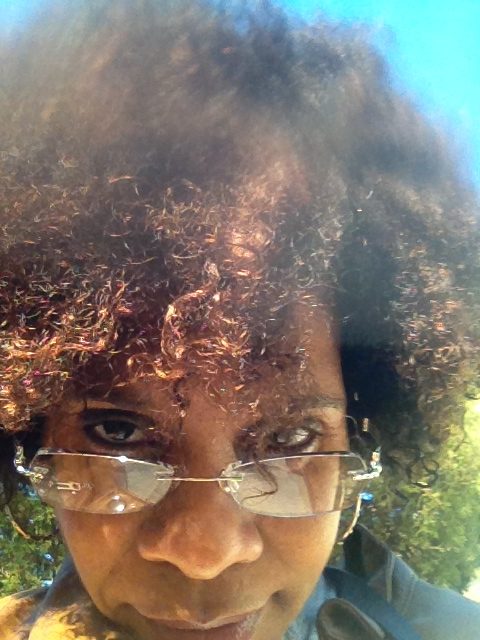Story Rewrote: How I (re) Learned to Appreciate Writing

Literary Narrative
Curious George, Babar the Elephant, World Book Encyclopedia, Mad Magazines, and Are You There God, It’s Me, Margaret; oh how I marveled, as a child, in how those authors captivated me with–their melodic, factual, and satirical syntax–for hours on end. For as long as I remember, my mother was my reading and writing inspiration. While my mother and I never sat down and wrote together—and she never probably even knew her impact–she always allowed my imagination and creativity with writing to just be. My mother was a writer and even had a story she wrote called “My Hero” about incident from her childhood published in Readers Digest and started an (unfinished) manuscript called The Fragrance of a Dead Flower. My love for writing resulted in my being on my high school’s newspaper and trying out and getting a coveted spot on my high school’s yearbook; My high school superlative was actually “most-likely to become an author!” For as long as I can remember, I loved to write and wrote regularly to my favorite cousin who lives in Chicago about my high school adventures. I loved to write.
I majored in English in undergrad but spent 16 years working in the non-profit world, my last gigs at The American Red Cross and Planned Parenthood where I wrote grants on a regular. I became exceptional in this art, not only because it was my bread and butter but because I came to enjoy the power of technical writing; my ninja-like precision grant writing skills resulted in my being awarded whatever monies for which I applied. At age 39, decided to become an English teacher and slid down the rabbit hole of obtaining an M.Ed. from UVA and a secondary teaching certification through VA Wesleyan’s career switcher program—one of the first in Hampton Roads. My first assignment was 6th grade English at Azalea Gardens Middle
School where I quickly learned that teaching writing in school had a whole different, negative context. The following year I moved up to 8th grade English and, like Elvis, the thrill of the marvels of teaching writing had definitely left the building! I did not find teaching writing in order to pass a test at all empowering and not only was it boring but there was a pall of fear amongst my students as they seemed afraid of everything they wrote because of the potential punitive consequences.
I entered the teaching profession full of hopes, ambition and the ability to inspire my students to love and appreciate writing just like my mother did for me. But writing skills at the schoolhouse weren’t about creativity and empowerment but, rather, numbers, data, conformity, formulation. Fear. Teaching English was not Dangerous Minds or Freedom Writers where a candy bar, composition book, or line game morphed students and administrators into expressivist constructivists: I did not sign up for this!
After five years of teaching 8th grade I moved to 11th grade high school English where formulaic writing expectations really went uber rogue. Over time my love for writing slowly withered away and, reluctantly, I jumped on the punitive five-paragraph essay bandwagon. Writing became about survival… for all of us.
Early in my teaching career I was chosen to take part in ODU’s Tidewater Writing Project summer Institute; later in pursuit of my gifted endorsement, I met two wonderful Virginia Beach teachers who ran a TWP summer creative writing camp for elementary and middle school students. I applied to teach for the camp thinking, “I could use a few extra dollars: Why not!”
I was nervous to teach younger kids and didn’t know what to expect. And then the students entered the room smiling, excited, and full of hope and writing ideas. Each day we covered a particular component of narrative writing: plot structure, show, don’t tell, writing what you know, adding conflict, having a theme…. In two-week’s, time, the students would publish a story book and presented it to their parents and family. And then they began writing. And writing. And writing.
Stories about mermaids and aliens, and girls running away from home. Sports and grandma. No inhibition. No fear. They are not nervous. “Ms. Bradley, let me tell you about this cool story idea I have for my book.” “Ms. Bradley, guess what my mermaid’s name is going to be?” “Ms. Bradley, what if I decide to have a girl like me turn into a superhero every night when she climbs out of her bedroom window and sneaks down to the beach for a swim?” “What do you think about the idea of an apocalyptic society where the only safe place for everyone is Barcelona, Spain?”
Suffice it to say, I was immediately taken aback at how confident and liberated stance those kids had with their writing. Did they have a writing hero like I did when I was their age? Did their classrooms not consist of endless formulaic writing tasks? I never thought I would have new writing inspirations, but I found several in these kids. I was a writing camp instructor for six years and each of those kids taught me to love writing again and to not be afraid to take risks.
Today, I focus on authentic writing in my classrooms—all while helping students find their own way to forge this path. And like my writing campers, I’m not afraid to take risks for the sake of good writing because I found my writing voice again. Those TWP writing campers kids reminded me that writing is liberating which, like Dorothy and those ruby slippers, I knew all along. Now that my mother is deceased, I realize that maybe she never finished that novel because she did not have a writing champion. She was one for me and I want to be one for my students. I’m glad I can be that now.